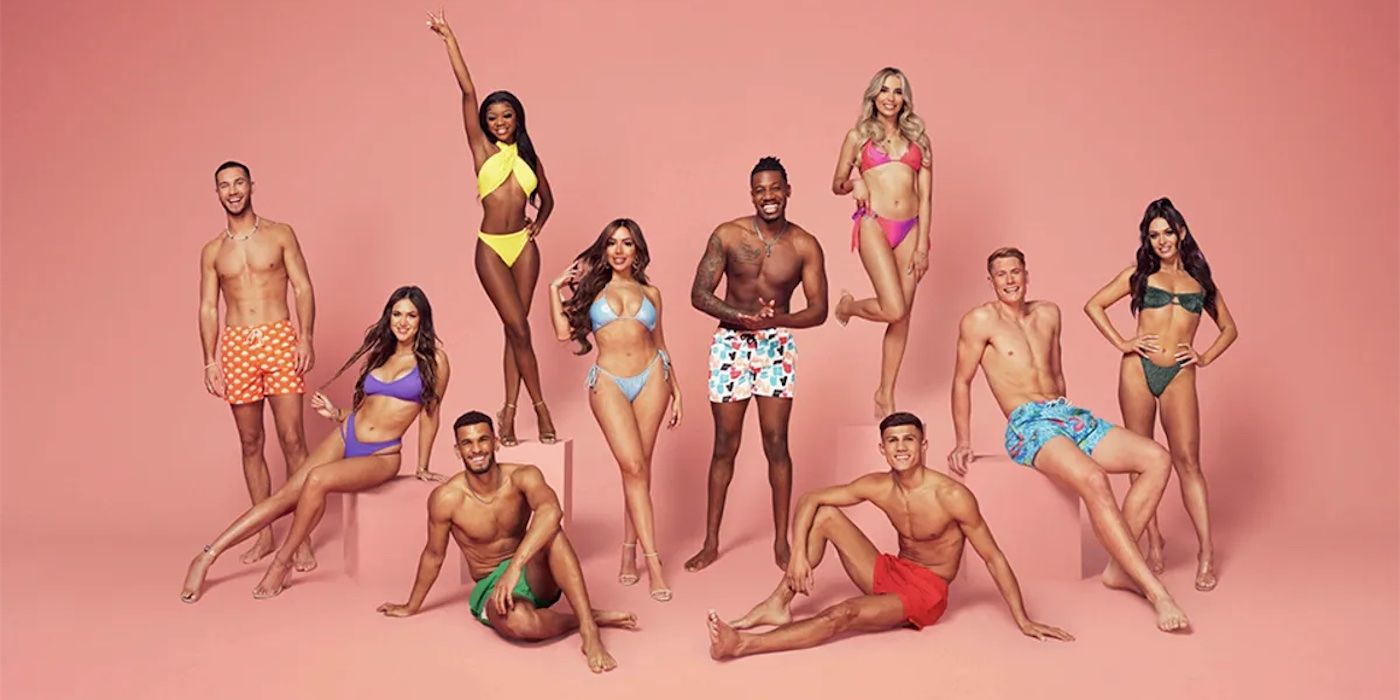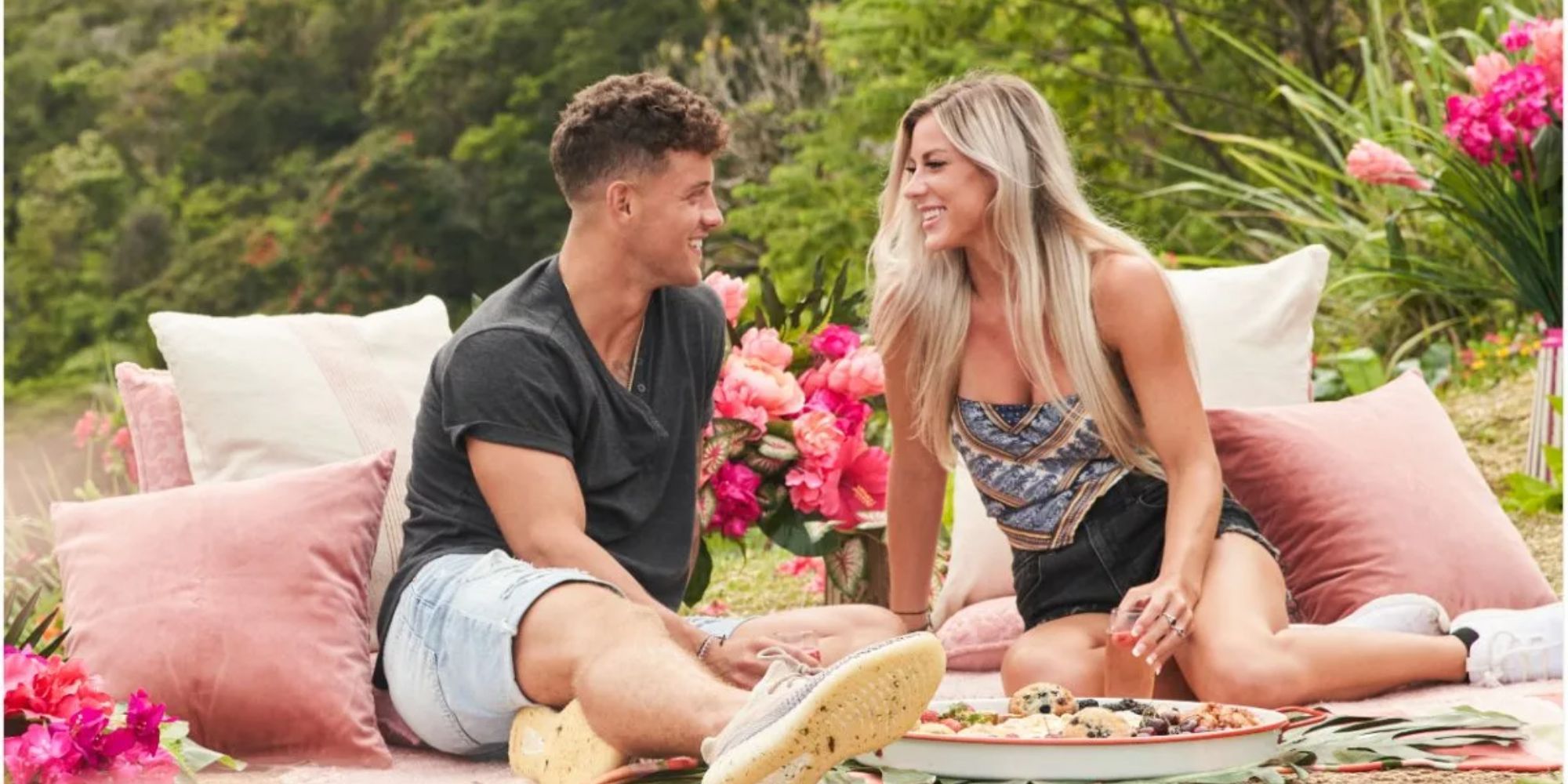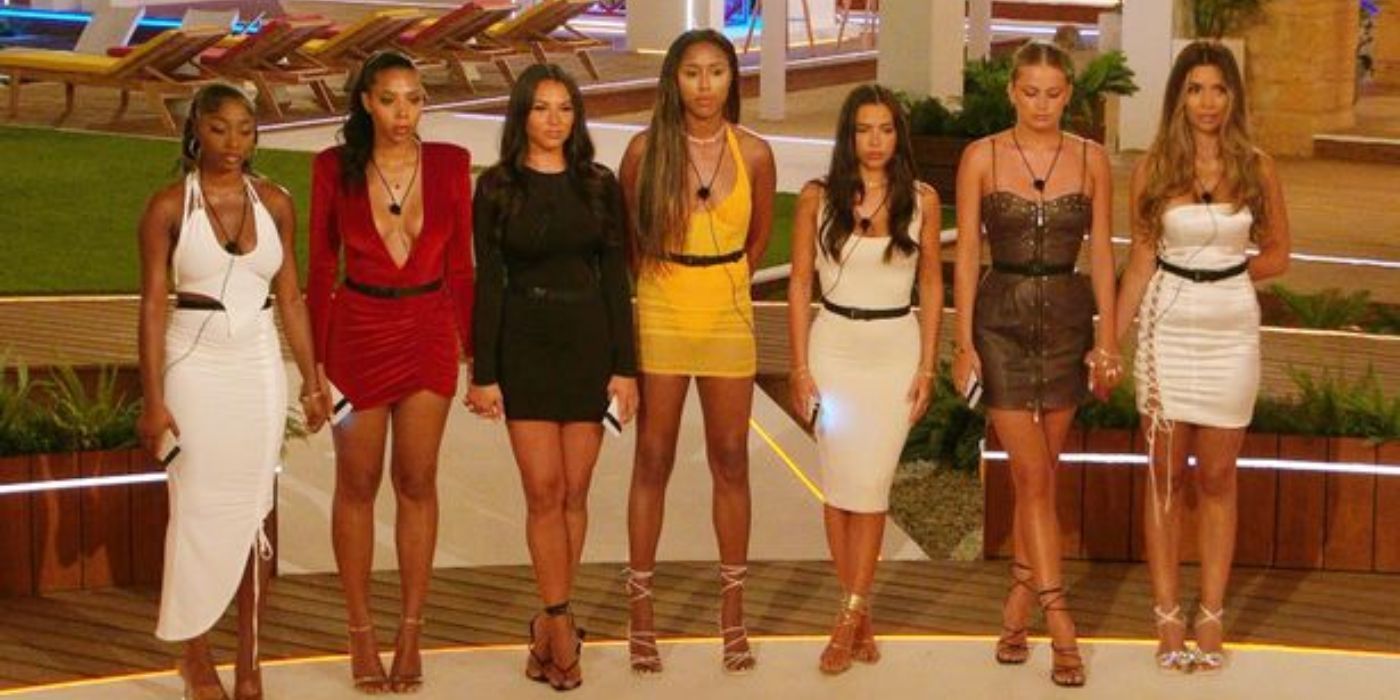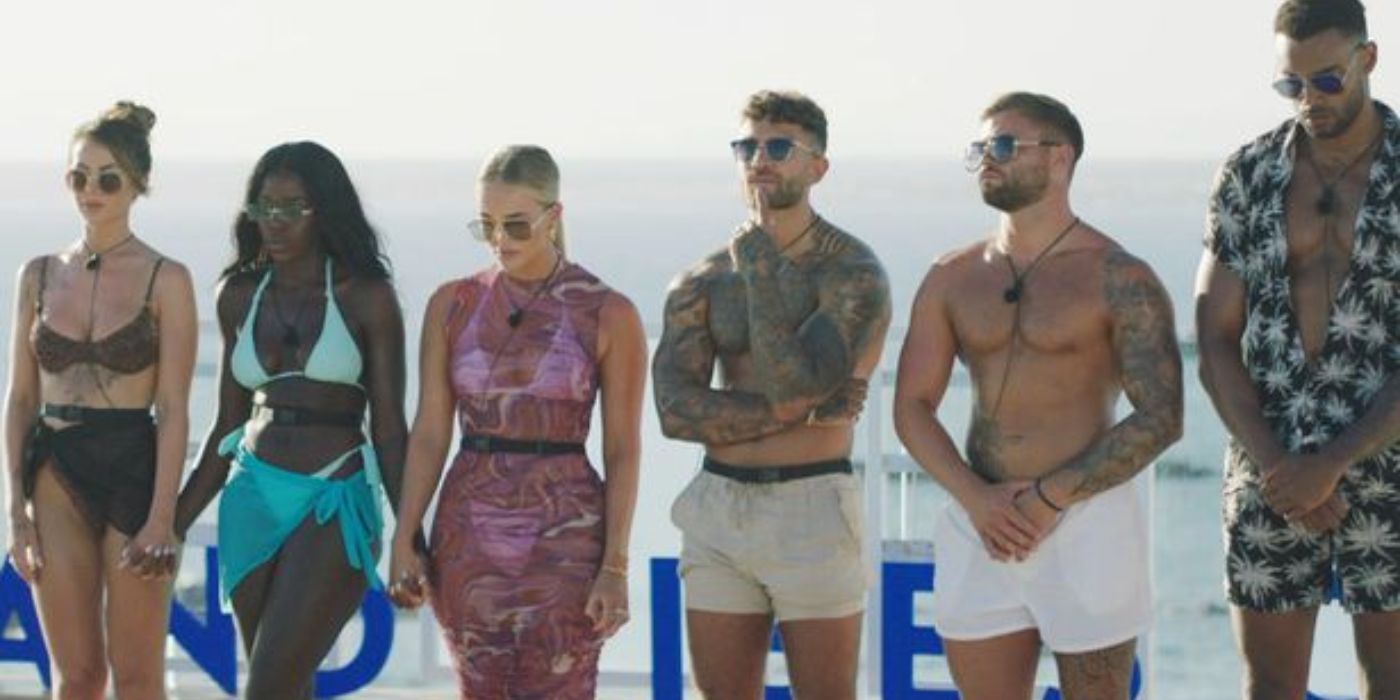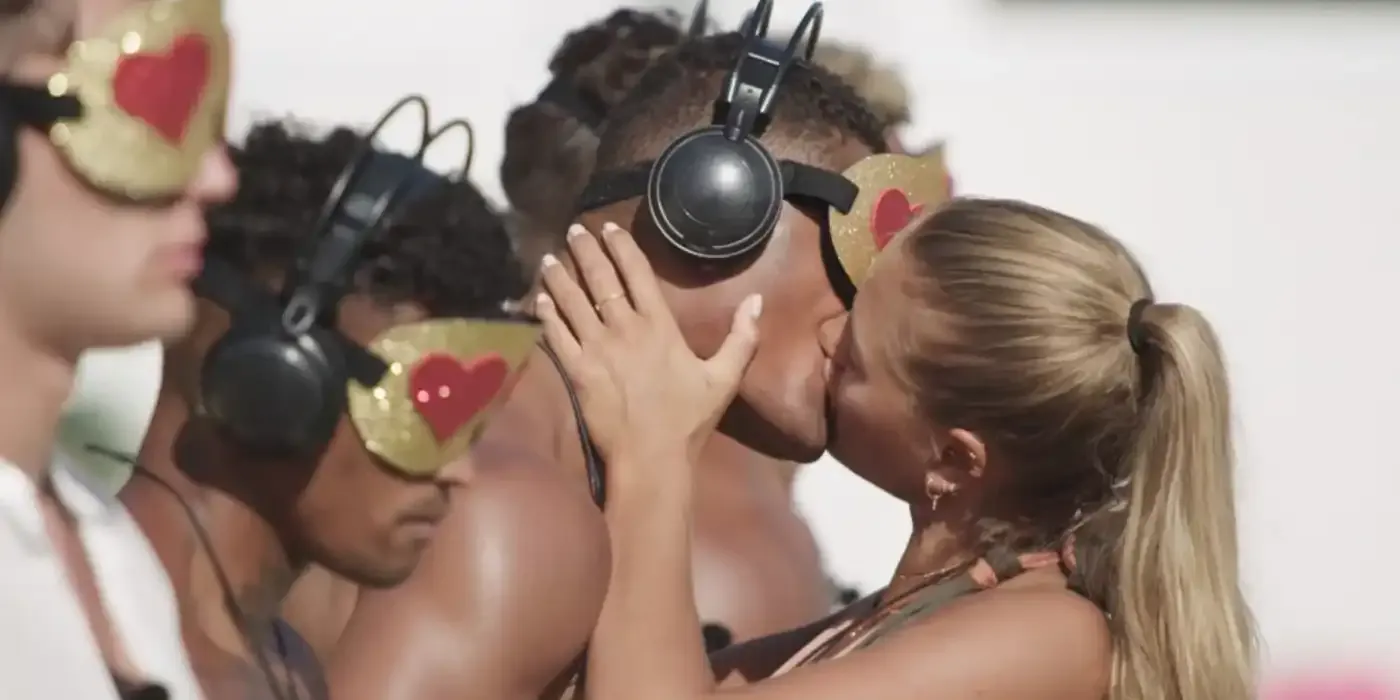Love Island is one of the most popular reality shows on TV, with with successful US and other international versions. The UK incarnation is the original, and it’s become pretty influential in British pop culture, especially among Millennials and Gen Z; in 2020, it was the most-watched TV show in the 18-34 age group. But we hate to say it: Love Island is boring now. For years, the show churned out entertaining season after entertaining season, peaking with Season 5 in terms of both quality and ratings. The same season made a star out of Molly-Mae Hague and created reality TV icons such as Maura Higgins and Amber Gill. But the show has been on a slow decline since then — Season 6 and Season 7 were considered underwhelming, and though Season 8 was somewhat of a return to form, the cracks in the series’ structure were starting to show. Season 9, which recently concluded, saw some of the show’s worst ratings ever. Clearly, it’s not just us.
It’s easy to blame this on a less impressive set of islanders, and while not everyone who gets cast on Love Island is reality TV gold, the issues with the series go way beyond the contestants. In fact, the last two seasons have seen some of the best winners yet. In the summer, the constantly chaotic and entertaining Ekin-Su and Davide won Season 8, and this year, the nation fell in love with the adorable, drama-free Kai and Sanam despite them only being together for a month, making them the first couple formed during Casa Amor to win. It’s evident that the true problem with Love Island lies in its stale format. The first glaring issue is that two seasons a year is too much — this equals four months out of 12 of Love Island airing six nights a week, seven if you include the extra “Unseen Bits” episodes. The winter seasons are simply unnecessary; they don’t give us enough time to miss the show, and frankly, they’re a nightly reminder of how far away summer still is. But this is just the tip of the iceberg — let’s take a look at some of the further reasons why we’ve soured on Love Island.
Recent Seasons Are Overproduced — And Not In An Entertaining Way
Yes, Love Island is produced and to an extent, scripted — all reality TV is. But in recent seasons, Love Island has dialed up the production involvement — and not for the better. Heavier producing always results in a less authentic show, but we’re willing to make the trade-off if it’s more entertaining instead. The problem with Love Island is that its overproduction has made it more dull, not less so. This is perhaps most obvious in the islander conversations, which feel increasingly staged and one-note. There are only so many times we can hear “Can I pull you for a chat?” and “Where’s your head at?” in one episode before we start losing brain cells. The biggest offender here is the debrief chats the islanders have each morning, forcing them to split up into boys and girls and recap to each other the events of the previous night, which us viewers just saw before the ad break. Yawn.
One-on-one dates are typically no better, particularly before couples become exclusive, and are often edited down to a compilation of quotes such as “It’s still early days,” “I’m keeping my options open,” and “I want to get to know you.” Nobody talks like this in real life, so it would be nice to see islanders chat in a more natural way and about a wider range of topics, allowing us to get to know them better, both individually and as couples. The annoying thing is that we do see amusing discussions between the islanders, but these are usually taken out of context and put into Saturday’s “Unseen Bits” highlights episode. We’re sure there’s more there that we don't get to see at all.
There Aren’t Enough Ways for Viewers To Get Involved
Love Island would definitely be a more exciting watch if there were more opportunities for viewers to make their opinions heard. Public votes have become few and far between, with Season 9 going several weeks without them. Even when we do get to vote, this is frequently only to decide the bottom two or three contestants or couples, with islanders getting the final say on who gets dumped, or islanders being dumped through recouplings as a consequence of not being picked. For the first six weeks of Season 9, only two islanders left without any islander intervention. This sometimes leads to fan favorites the public would’ve saved being dumped too early — as was the case with Zara and Tanyel this season. Last season, it began to seem like viewers might be given more control, as viewers were also allowed to pick who should initially couple up, but this twist hasn’t been used again since.
Long gone, too, are the days of numerous challenges per season that involve the viewers. Games that showed islanders headlines and tweets about them used to be a staple of any season. These have likely been nixed, understandably, for mental health reasons — they were often negative and upsetting or humiliating to contestants, and it wasn’t made clear to islanders whether the opinions they saw were widely-held or taken out of context. On the other hand, popular islanders got to learn they were well-liked, and those that had made missteps in the show were able to gain some outside perspective on how they’d acted. Surely producers can expand audience interaction without encouraging cruelty towards contestants.
The Potential for Bullying Means That Risks Outweigh the Benefits
Obviously, anyone who has a negative opinion of an islander can still turn to social media, where the show remains widely discussed. Islanders are scrutinized on a daily basis, and frequently receive significant backlash that sometimes veers into bullying. ITV have tried to combat this — while traditionally, islanders would have friends and family members manage their social media accounts during their time in the villa, a social media ban has now been put in place for contestants. But this doesn’t stop people from messaging islanders, commenting on their posts, sending tweets, or making TikToks and YouTube videos, all of which they can still see once they get home. And islanders from Season 9 have spoken up about how their family and friends were still exposed to trolling while they were on the show regardless.
So, while this doesn’t stop bullying, it does harm their account growth — no active posting means there’s little incentive to follow an islander while they’re in the villa, and once they’ve been dumped or the season ends, many people are ready to move on. Lower follower counts and engagement rates might result in fewer influencing prospects, such as brand deals, and so they have less of a guaranteed source of income from going on the show. This might deter some people from applying, or make them more likely to self-produce while in the villa in order to appeal to audiences. We don’t blame them, but it certainly results in a less entertaining show,
The Show’s Challenges and Twists Are Tired, Repetitive, and Predictable
Challenges are great for spicing up a calm episode and generating messiness, but too many of them are pointless and tell us nothing new about the islanders. Take, for example, the countless challenges where they have to complete an obstacle course before deciding which islander was the sexiest while performing it. We suppose we should be glad that they seem to have gotten rid of the challenges where islanders pass food or drink using their mouths. But for the most part, the challenges are rife with unfulfilled potential — they lack interesting fallout and have no stakes. Maybe it would be more interesting to see the islanders working with or against each other to win prizes and luxuries, such as a night in the hideaway, or even the ability to put someone up for elimination. Final week challenges are especially formulaic — the talent show occasionally has its moments, but we’re pretty sure nobody enjoys the tedious baby challenge that forces the islanders to look after dolls. By the time we get to those long final dates, any drama or doubts within couples are suddenly vanquished, and viewers are just waiting for it all to be over. Maybe we should just stick to Perfect Match.
Of course, no article on the Love Island format would be complete without discussing the infamous Casa Amor — the twist that comes halfway through the show and sees either the girls or boys move to another villa for a few days and six new potential suitors introduced into each villa. This used to be a thrilling shake-up as contestants recoupled left and right with new islanders, but recently it's been mostly inconsequential. This year, it only succeeded at breaking up one couple — Olivia and Kai, who both returned with new partners — while Shaq was the only “Casa victim,” choosing to stick with Tanya, who instead recoupled with Martin, whom she kissed in Casa Amor despite previously telling Shaq she loved him. But anyway, Tanya and Shaq eventually got back together, following in the footsteps of both Dami and Indiyah and Tasha and Andrew from Season 8, who also ditched their Casa partners for their OG love interests.
Another Love Island trend since Season 7 is where islanders kiss and “test their connection” with different people in Casa Amor, before returning solo and groveling for forgiveness from their original partner — and it almost always works. Boys Will, Tom, and Casey all had success with this method in Season 9. Casa Amor is simply predictable now — everyone knows it’s coming and how to play it. It only lasts a few days, so there’s rarely enough time for islanders to build connections that rival the ones they already have, and all rejected Casa Amor islanders are immediately dumped afterward, meaning there’s little drama or confrontation. Up until Season 9, no couple formed in Casa Amor had ever won the series, so islanders know that they’re likely to be more popular if they stay in their original pairing. This is part of why Kai and Sanam’s win is so refreshing — they actually broke the mold and might make future islanders reconsider playing it safe by settling with the person they've known the longest.
All of this is not even to mention other more serious systemic issues within the show, such as its extreme lack of diversity, and mishandled representation. Over the years, many viewers and publications have picked up on the pattern of Black women, in particular, having fewer options in the villa and receiving much less attention than White or Biracial women. As well as this, there are many calls to include LGBTQ+ contestants and a wider variety of body types, with claims that the show promotes unattainable beauty standards.
In The End, Hate-Watching 'Love Island' Might Be Just As Fun
The overwhelming problem with Love Island is that its structure simply hasn’t changed in years. There are many improvements producers could implement, from abolishing its irritating cliffhangers that occur right before the most obvious dumping in the world to dedicating the first week or so to letting islanders experiment before allowing them to form their first couples. We hope our prayers are heard, but with all of its flaws, it’s hard not to be sucked into a season of Love Island, and no matter how many times we swear we won’t tune in again, we always do — and we love to complain about it too. When it returns in the summer, we will be seated once more. And if you crave more dating shows, Love is Blind will soon be back to tide us over.

